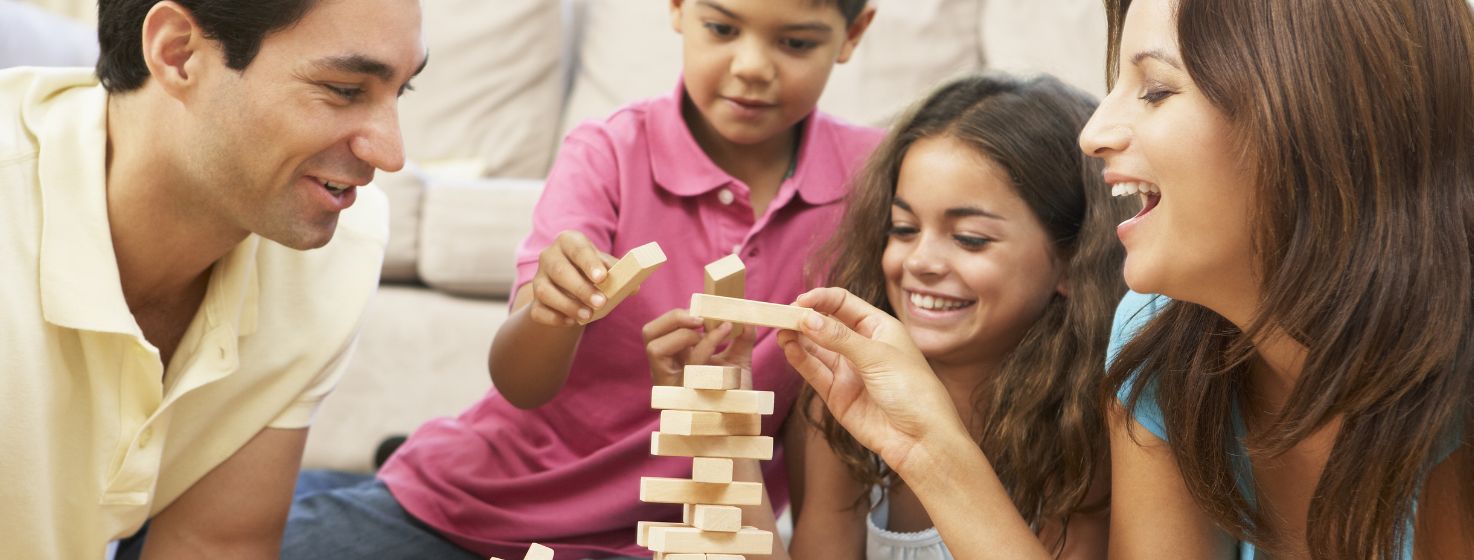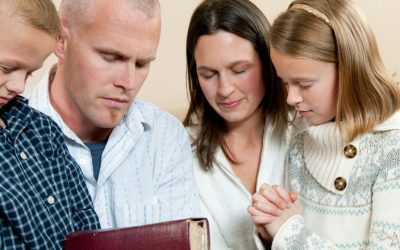Are you getting ready to homeschool kids who were previously in public school? Be forewarned: when kids have spent several years learning how to fit into the structure and expectations of traditional school and then are suddenly in a totally different environment, it can leave them in a bit of a tailspin. Your formerly loving children may at first seem cranky, resistant, and just plain unmanageable. Your homeschool dream may “poof” before your very eyes.
However, don’t despair and certainly don’t look back! What you might need is a period of
Deschooling
Deschooling is the process and time it takes to undo the habits and expectations of public school schedules and demands, even to break the idea that education only happens during certain hours on certain days in certain months – because homeschooling, at its best, is not so contained. Homeschooling, instead, celebrates the idea that education happens 24-7 and that learning is not only fun, but also motivating in its own right! Education is something we do to explore the world. We’re not preparing to spit back information on a test, but rather preparing to live life wisely.
Consider that school teaches that education is
- doing dreaded homework
- making an A on a test
- avoiding the possibility of “failing”
- being stuck in a chair all day long
- being in the same room all day long
- having one teacher for an entire year – who stands in the same place in the same room with the same stuff day after day
- completing a textbook
The time you take to intentionally disrupt these traditional school expectations is deschooling. You first interrupt the old expectations so that you can slowly replace them with healthier expectations. Deschooling puts aside academics, rigid school schedules, and public school expectations to slow down and do things in ways that would normally not be acceptable during “school hours.”
So is deschooling not doing school at all?
Well, not quite. Deschooling just recognizes that habits are hard to break and provides time to embrace – and normalize – change. In their own way, deschooling activities involve lots of learning! So set aside the new curriculum for a bit while you expand your vision of education to include the innumerable moments of learning that occur every day:
- go hiking or biking all day and enjoy nature
- play board games after breakfast
- read aloud in the backyard
- play math games
- read stories without any comprehension quizzes
- spell nonsense words in a goofy spelling contest
- tend your garden or can the harvest together
- watch history or science videos
- learn about a favorite historical era via a historical fiction novel
- bake goodies together
- fire up a baking soda and vinegar volcano – or spend a whole day doing nothing but fun science experiments
- plan and go on a variety of field trips – just your family – to local battlefields, state parks, science centers, or museums
- write letters to Grandma for spelling, grammar, and handwriting practice
- go to the zoo, park, or just on a nature walk
- collect a variety of leaves, press them, identify them, draw them, and then go on a hunt for a certain variety of tree
- spend a whole day trying to live without electricity
You’re learning! Just not the way you’re used to doing it. No desks, no workbooks, no textbooks.
Best of all, don’t be afraid of your kids being bored. Boredom is one of the best deschooling tools! You might be tempted to “solve” the boredom with screen time, but encourage creativity and family bonding instead.
You may ask, didn’t we just deschool over summer break?
No, because everyone deschools over breaks. It’s normal. Everyone is outside at the pool, traveling, enjoying the season. Summer break is not deschooling—it’s still following the schedule and habits prescribed by public schools. The deschooling time comes in August and September (or after break ends), when everyone else goes back to school and you… don’t. Suddenly, you’ve stepped outside of normal. Reality sets in. You’re not going back. Deschooling begins now.
How long does deschooling take?
It has been suggested that you should deschool for one month per every year your child was in public school. Is that a magical rule of thumb? Probably not, but it can provide a starting point. Every family is different, but what you are aiming for is time. Lots of time. Time to change habits and change how you view education.
Won’t my kids fall behind?
You’ll soon learn that homeschooling is more efficient despite the fact that it can look so little like “school.” Believe it or not, you need to deschool too!
Deschooling for You
- Learn to be a family together again
Reconnect. You must learn how to live together all day, not just from 4 pm to 6 am. You will have less alone time and must learn to embrace your children in a whole new way.
Observe them as they explore their new freedom. You’re now with them during their best day-time hours, not just when they’re tired and grumpy. Slow things down and establish close family ties and habits/traditions. Start everyone’s day in a cheery, expectant sort of way.
Remember, too, that they’ve been separated out into age units the entire time they’ve been away in school. They’ve learned to look down on the younger students while longing to be recognized by the older ones. Now you have the job of breaking down those age distinctions and prejudices – that aren’t “normal” outside of school anyway! That “competitive” or “superior” spirit based on nothing more than birthdates deserves to die a painful death. Work toward family camaraderie.
- Explore your homeschool community
You’re not alone! There’s a full community of homeschoolers, past and present, who have been there, done that. It’s a diverse community – some of whom have fully deschooled and others who have replaced public school with basically the same thing at home. Nevertheless, there’s a wealth of experience and community available to today’s homeschooling parents.
Are there park days? Group field trips? Art or music classes? Homeschool sports? Local businesses that provide day-time classes? Local libraries can also be a treasure trove of free and readily-available resources.
Believe it or not, support groups for parents may be more important than co-ops or other activities for your kids. For help connecting with your community, check out CHEWV’s support group page.
Can’t find what you’re looking for? Build your own community! It’s not as hard as you might think – and it’s how they all originally started.
- Keep learning about homeschool styles and resources.
While this is where most new homeschoolers start, you might put this on hold during deschooling. If you are not yet “deschooled,” you will be tempted to just fill “school time” with a homeschool style or curriculum. Although many of us made that mistake at first, the true value of homeschooling goes well beyond “school.”
As you observe your kids as they shed some negatives, you can better judge the merits of the various homeschooling styles – which of them might better benefit your family in this season of life. But for now, don’t stress about curriculum or “getting started.” Perhaps you can take advantage of your new homeschool community to ask about curriculum and see if they’ll let you take a peek at theirs. (This is also a great way to make new friends since everyone is flattered by interest in what they are doing.)
Deschooling for Your Kids
Deschooling is often harder for your kids than for you – perhaps because you understand what is happening whereas they may not. Plus they may or may not agree with your homeschooling decision.
Kids thrive on routine (even if they deny it) and feel the lack of it more than adults. You just pulled the rug out from under their routine! They may ask for “school” because that’s what feels normal and offers the security of sameness.
However, try not to derail the deschooling by sticking workbooks and worksheets in front of them. While that may seem easier, it may not get you to your long-term goals. Worksheets and workbooks are part of the public school habit. The child knows what is expected of her (complete the page, make an A) and relishes the feeling of anything that resembles continuity to her previous life.
- New routines and rhythms can help.
You don’t have to throw out the baby with the bathwater! Routines are good, whether public schooled or homeschooled. It’s making new healthier routines that you’re after, not a life with no rhythm at all. So create new rhythms during deschooling that replace the habits you’re breaking. Go for a walk right after lunch. Create ongoing read aloud together times. Choose a day for outdoor activities and field trips. Incorporate music practice, chores, and Bible quizzing study into your regular routine – not as an “after school” add-on. Include your children with the laundry and cooking chores. Deschooling isn’t a free-for-all for the kids, and life doesn’t “get out” for the day like school does. There’s no longer an “after school.” There’s just 24-7 education, sometimes using curriculum.
- Involve your kids in educational choices – within reason.
Involving your children can help them understand how school is changing – which then becomes part of their education! So when you’re considering Charlotte Mason versus Classical, involve your age-appropriate kids in the discussion. It’s okay for them to think through the pros and cons and to voice their opinions. It’s also okay for you to counter their opinions with other things to consider. But don’t keep all your questions and considerations secret. Your kids can provide valuable input, giving you a peek into the concerns currently on their radar.
When you get to the details, this is where your kids can really help make decisions – which time period to study right now, styles of math instruction, which book for read aloud (perhaps from a limited selection), science topics to study, which field trip locations for this fall… Help your kids own their education – and eventually think it all through for themselves.
When it’s time: Back to (Home) School
It’s not necessary to end your deschooling all in one fell swoop! Start slowly with one or two subjects daily, then add the rest over two weeks to a month. Since math is a subject that builds on itself, and also one that many children dread, it can be wise to add it in more quickly and learn to make it fun! Can you teach some of these concepts in an active, kinesthetic way? Do they really have to do 30 problems if you already know they have proven mastery? Can they count real money instead of pictures of money?
Remember, too, that you don’t have to do every subject every day. The three R’s (reading, ‘riting, and ‘rithmetic) might be every-day fare while science, social studies and electives involve longer projects on fewer days. Quality trumps quantity. Hour-long “class periods” may not end up being helpful at all – try shorter lessons when possible and take breaks during longer ones.
All those fun, relaxed habits you built during deschooling? Don’t lose them! Family read-alouds, play time, game days/times, family field trips, exploring ideas together – treasure those like gold.
Adjusting to a different educational mode is not a weekend endeavor and it will take far longer than just your deschooling period. “Finding your groove” may take a year or two, and then you will still continually tweak as you grow and change together. That’s part of the beauty of relationship-driven education.
“After all,” says the seasoned homeschooler with a knowing smile, “Homeschool is more than ‘school at home.’ It’s when education merges with all of life and we all learn together.”
___________________________________________________
Editor’s Note: Concepts originally authored by Jill Wildermuth of the Indiana Association of Home Educators. We are indebted to IAHE for their generosity.





Recent Comments